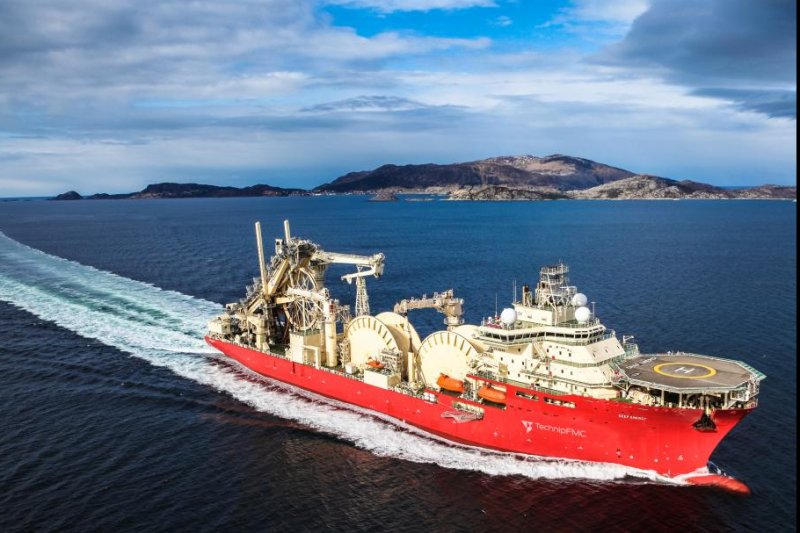A vessel designed to lay pipeline is set for work in the oil-rich waters off the coast of Brazil. Photo courtesy of TechnipFMC
June 14 (UPI) -- A marine vessel designed to lay pipelines in the submarine environment arrived in the oil-rich waters off the coast of Brazil, joint venture partners said.
Oilfield services company TechnipFMC announced its partnership with DOF Subsea started its eight-year contract with Petróleo Brasileiro for use of construction vessel Skandi Recife. The vessel is chartered to lay pipelines in the deep waters of the Campos, Santos and Espírito Santo oil basins off the coast of Brazil.
Petróleo Brasileiro is the semi-public energy company in Brazil, known also as Petrobras.
"The delivery of Skandi Recife and the commencement of a new contract with Petrobras reinforce our commitment to the development of the Brazilian market and our extensive ultra-deepwater pipelaying experience," Hallvard Hasselknippe, the president of subsea activities at TechnipFMC, said in a statement.
Brazil last week held its fourth auction for the rights to bid on four areas outlined in the 1,634-square-mile offering. Three of the areas were snatched up in what turned out to be a record-setting bidding round for the country.
Brazil ranks second behind Venezuela in terms of proven oil reserves in South America. Its Libra field alone holds between 8 billion and 12 billion barrels of recoverable reserves.
Much of the oil from the offshore basins is buried underneath a thick layer of salt on the ocean floor and producers have been able to crack into that in recent years. Output from pre-salt basins has accelerated since 2009 as exploration and production technology acclimates to the region's tough conditions.
Juliana Miguez, a senior research analyst for Latin America at consultant group Wood Mackenzie, said Brazil is a premier oil producer, but only for those companies with deep enough pockets to crack the pre-salt basins.
In May, the Brazilian Central Bank said the nation's economy was softening, which it said was expected during a period of gradual recovery. There may be frustrations with the pace of inflation, however, and broader risks in the global economy.
President Michel Temer tabled a proposal last month to cut prices for 60 days and suspend some highway tolls in an effort to appease the striking workers. Lorry drivers had been protesting higher fuel prices for much of the month.















